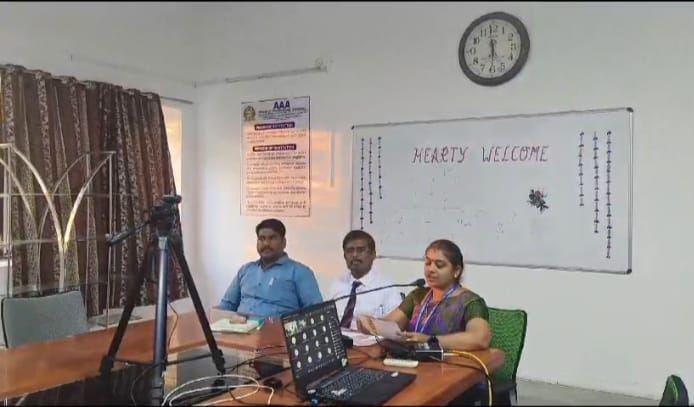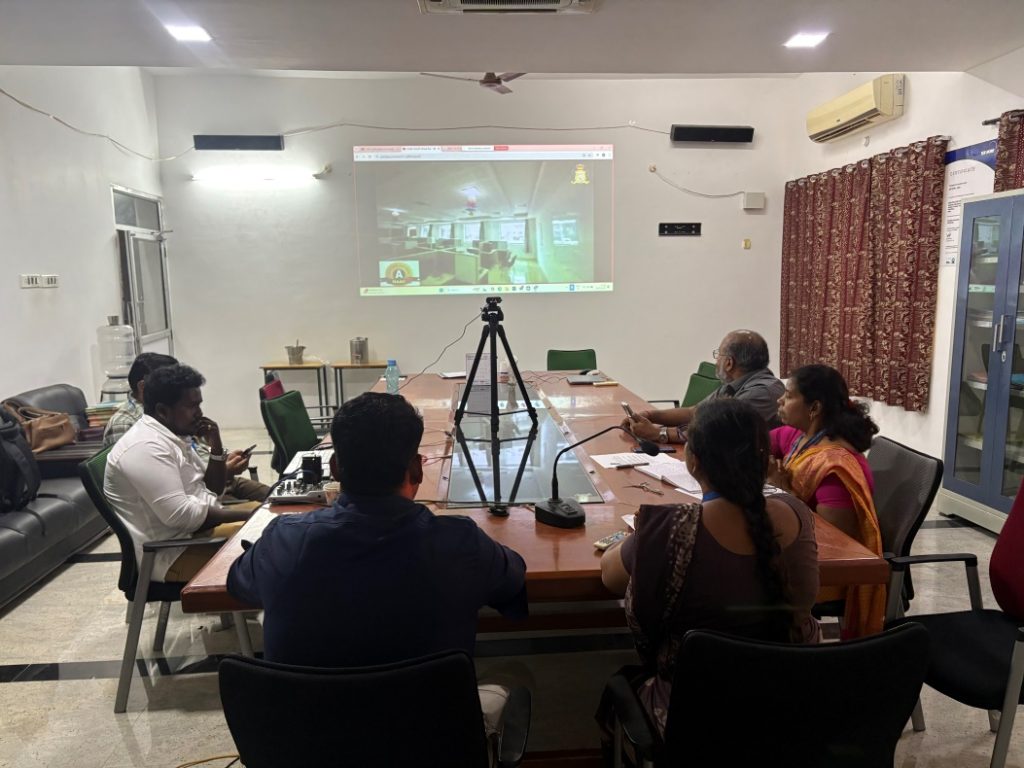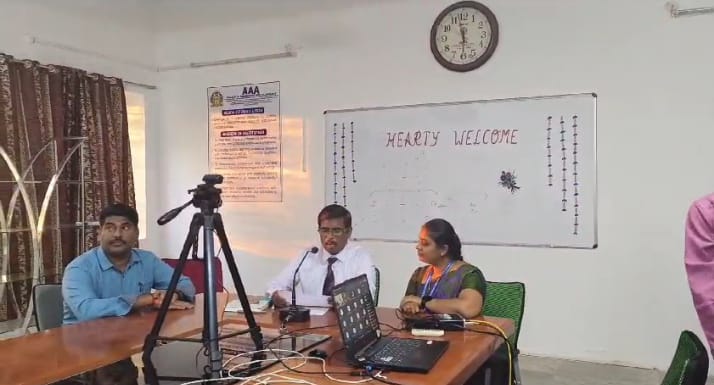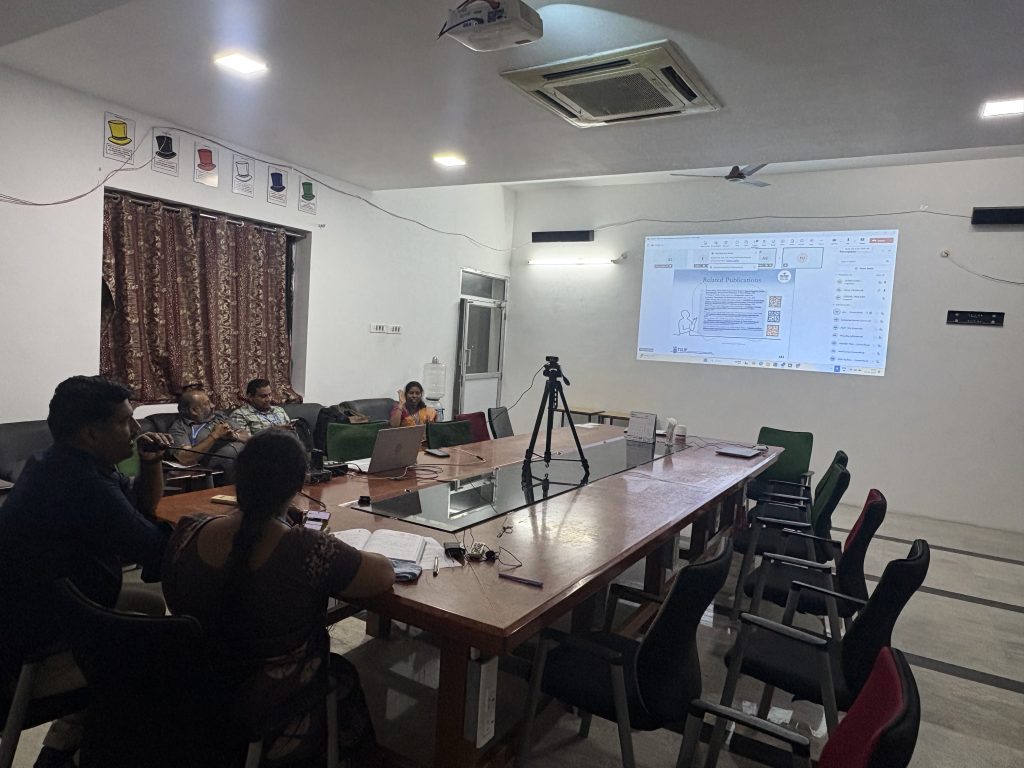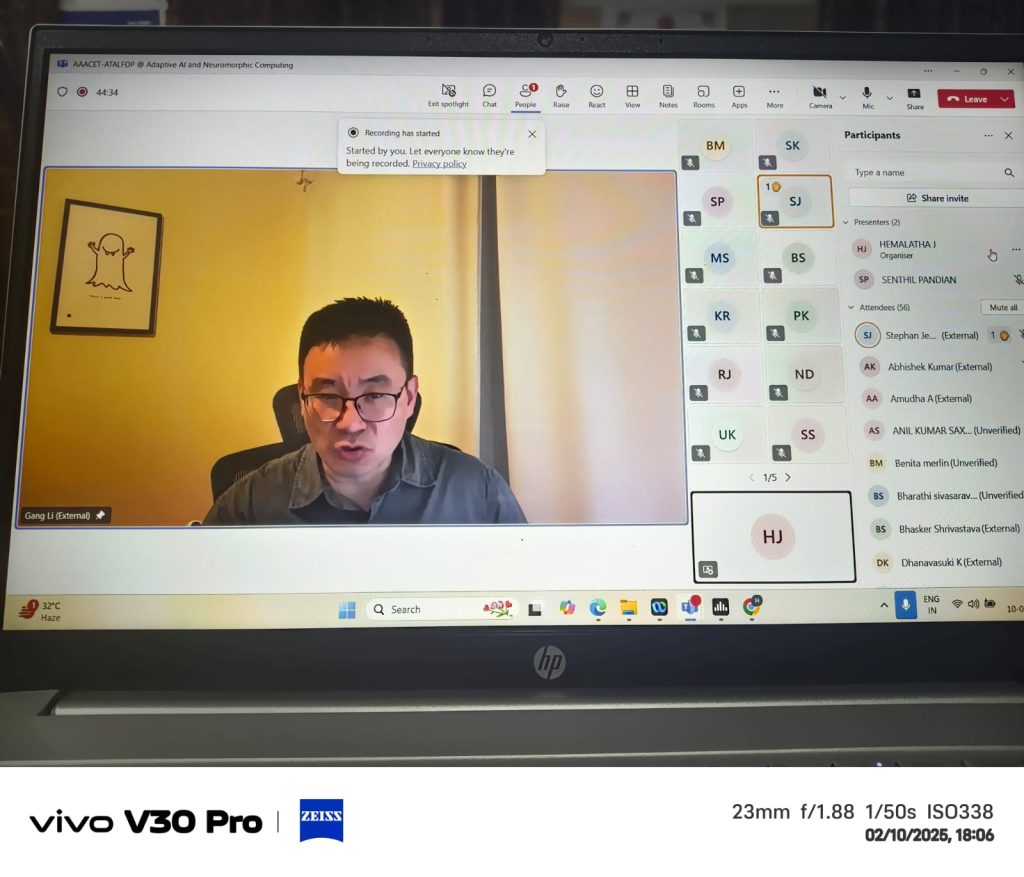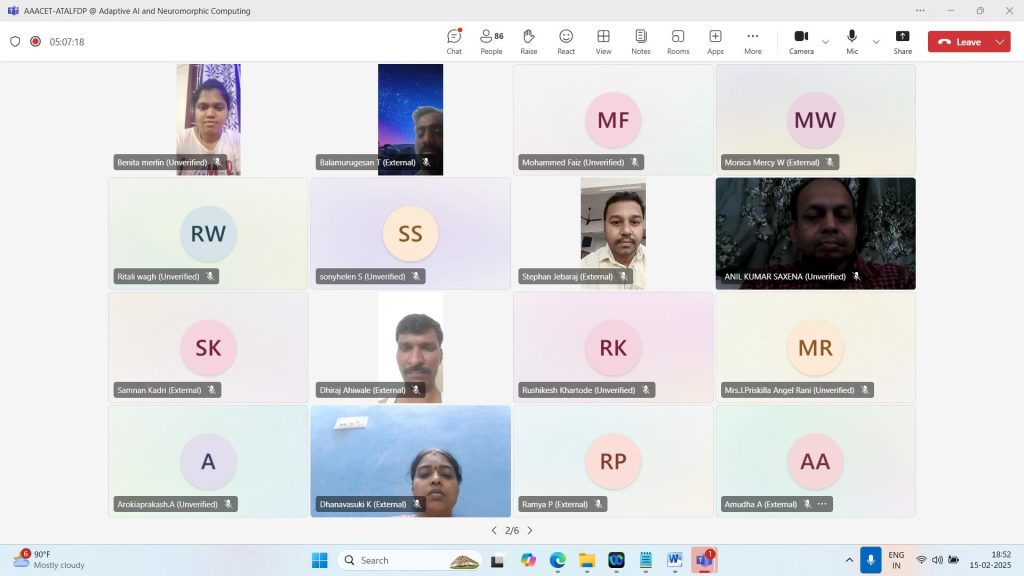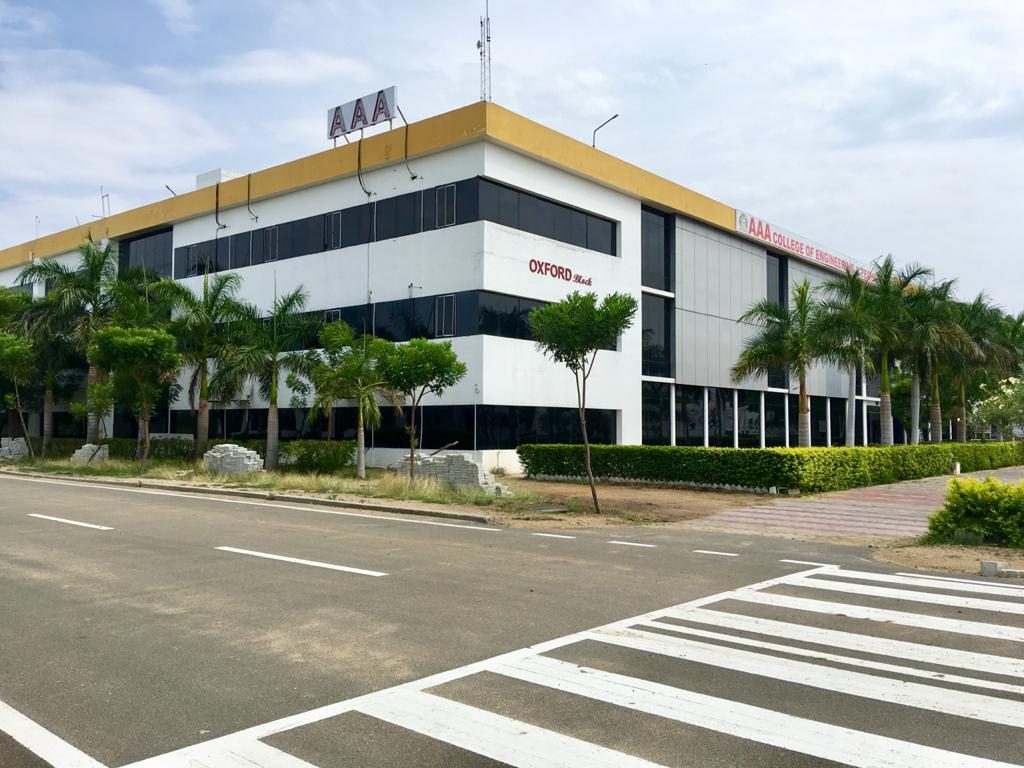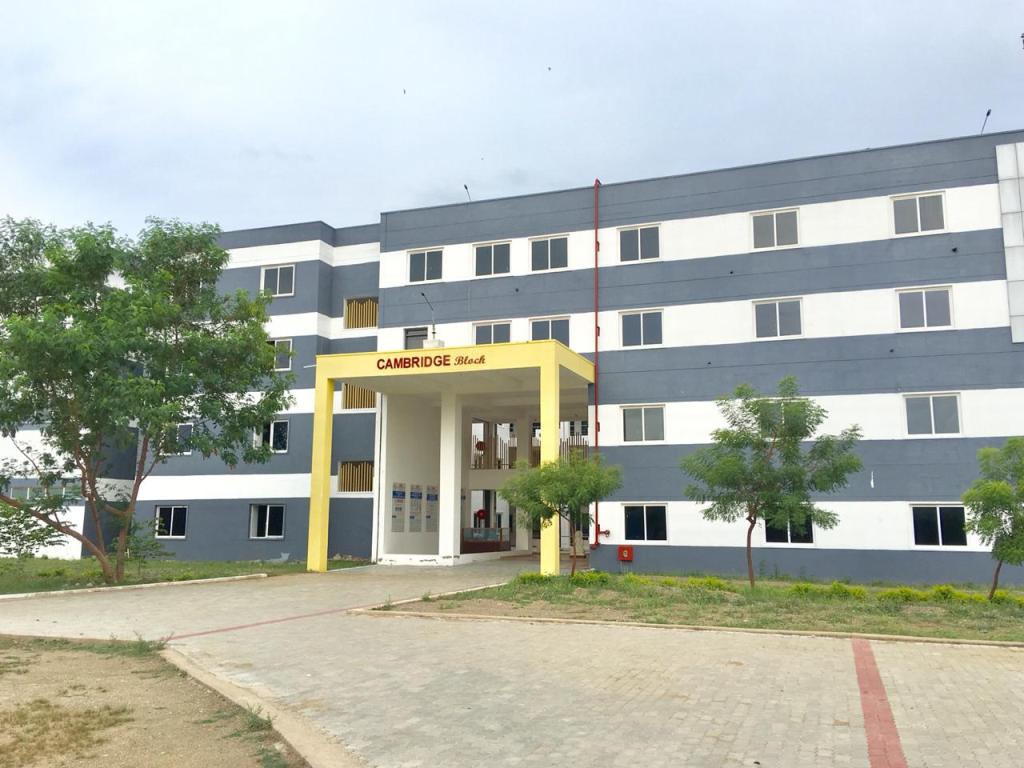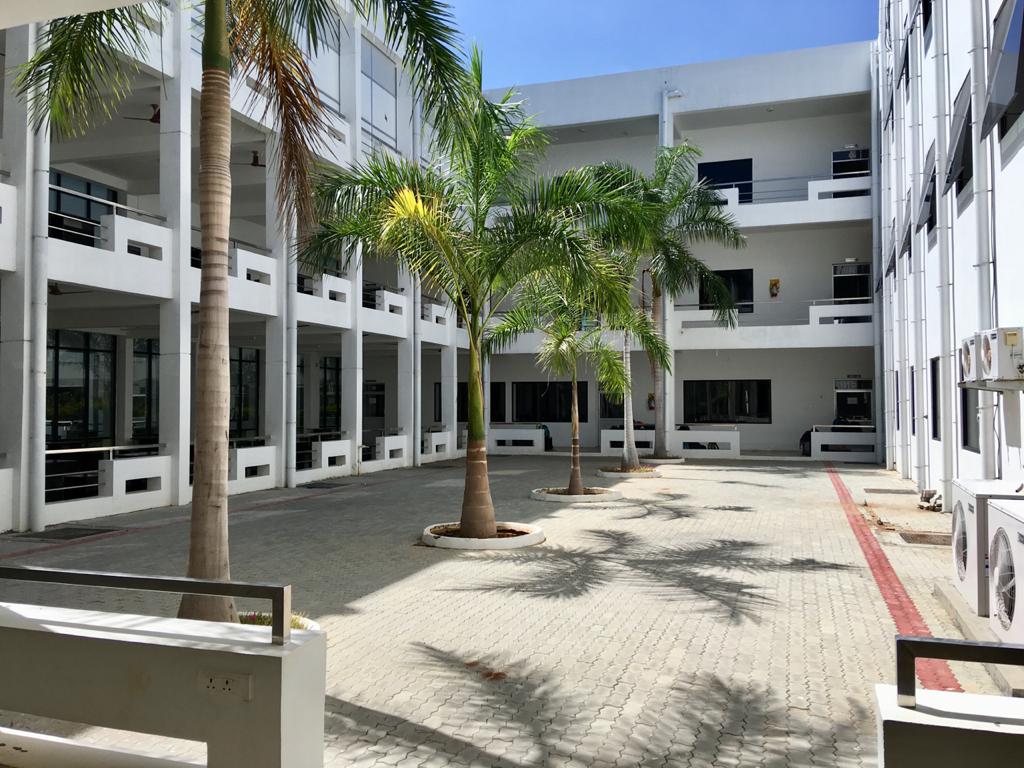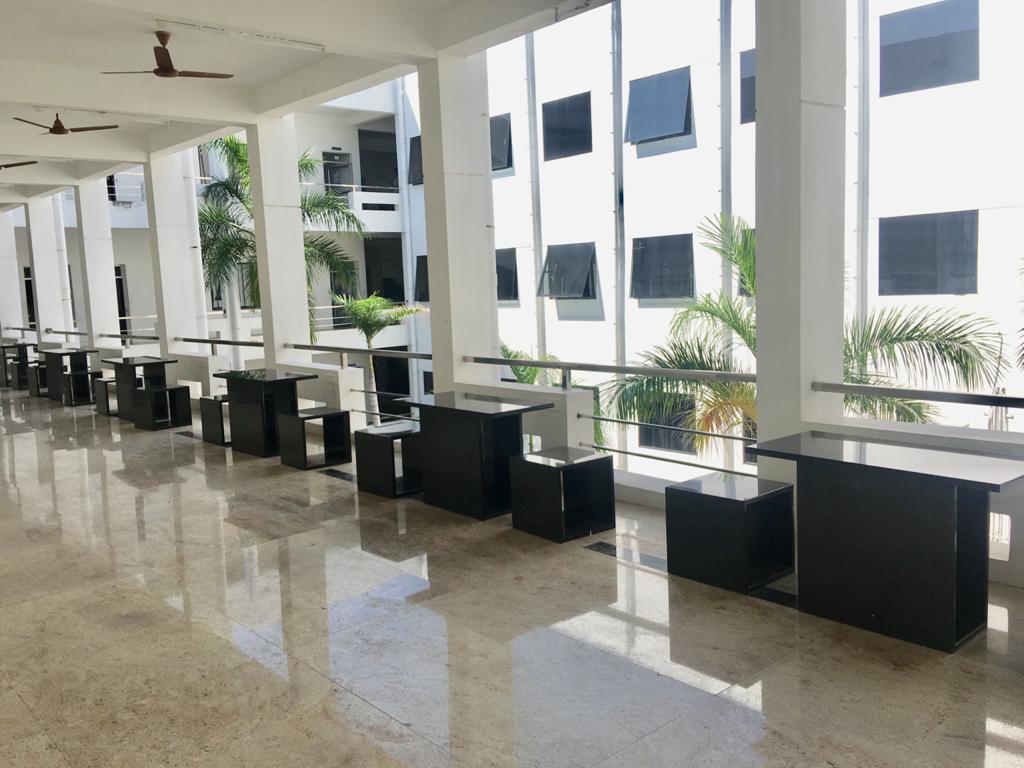Organized by: Department of Computer Science and Engineering, AAA College of Engineering and Technology
Date: 10th – 15th February 2025
Venue: Online
Total Participants: 140+
Total Sessions: 13
The AICTE Training and Learning (ATAL) Academy-sponsored Faculty Development Program (FDP) on Transforming Disaster Management and Resilience in Civil Engineering through Adaptive AI and Neuromorphic Computing was successfully conducted by the Department of Computer Science and Engineering, AAA College of Engineering and Technology (AAACET) from 10th to 15th February 2025. The FDP witnessed an overwhelming response, with more than 140 participants from across the country, including faculty members, researchers, and industry professionals. . The FDP aimed to explore cutting-edge AI technologies for disaster prediction, response, and resilience, with a special focus on neuromorphic computing and adaptive AI.
Inauguration and Objectives
The FDP commenced with an inaugural session, graced by chief patrons and dignitaries of AAACET. The event was coordinated by Dr. J. Hemalatha (Coordinator) and Dr. R. Raja Guru (Co-Coordinator). The key objectives of the FDP were:
- Enhancing disaster forecasting accuracy using AI-driven predictive models.
- Leveraging real-time data from IoT, drones, and satellites for disaster response.
- Assessing infrastructure resilience against various disaster scenarios.
- Developing AI-based models for optimizing emergency response and recovery efforts.
Expert Sessions and Topics
The six-day FDP featured 13 expert-led sessions, delivered by renowned academicians and industry professionals from India and abroad. Some of the key sessions included:
- Disaster Management in Civil Engineering – Prof. Gang Li (Melbourne Burwood Campus, Australia)
- Neuromorphic Computing in Smart Infrastructure – Mr. E. Guru Chandran (Zoho Corporation)
- Advanced Predictive Models for Natural Disasters – Prof. Lorna Uden (Staffordshire University, UK)
- Intelligent Decision-Making Frameworks – Mr. Deva Bala (Corent Technology Inc, Chennai)
- Ethical, Legal, and Policy Implications in AI for Disaster Management – Dr. S. Venkataprasad (TCS, Chennai)
- Case Studies and Real-World Applications of AI in Disaster Resilience – Prof. Akhtam Kalam (Victoria University, Melbourne) and Dr. Surendar M (NIT Puducherry)
The comprehensive schedule covered theoretical foundations, real-world applications, and emerging challenges in disaster management through AI-driven solutions.
Outcome and Conclusion
The FDP provided in-depth knowledge and practical insights into the application of AI and neuromorphic computing for disaster preparedness, response, and resilience. The program also emphasized the importance of adaptive AI in infrastructure planning, risk assessment, and real-time decision-making.
The engaging sessions, interactive discussions, and case studies allowed participants to explore the latest advancements and challenges in AI-driven disaster management. The FDP concluded with an online test and feedback session, followed by a valedictory ceremony, where participants shared their learning experiences.
The overwhelming participation of 140+ attendees and highly positive feedback reflect the success of the FDP. AAACET remains committed to advancing research, education, and innovation in AI-driven disaster resilience.
